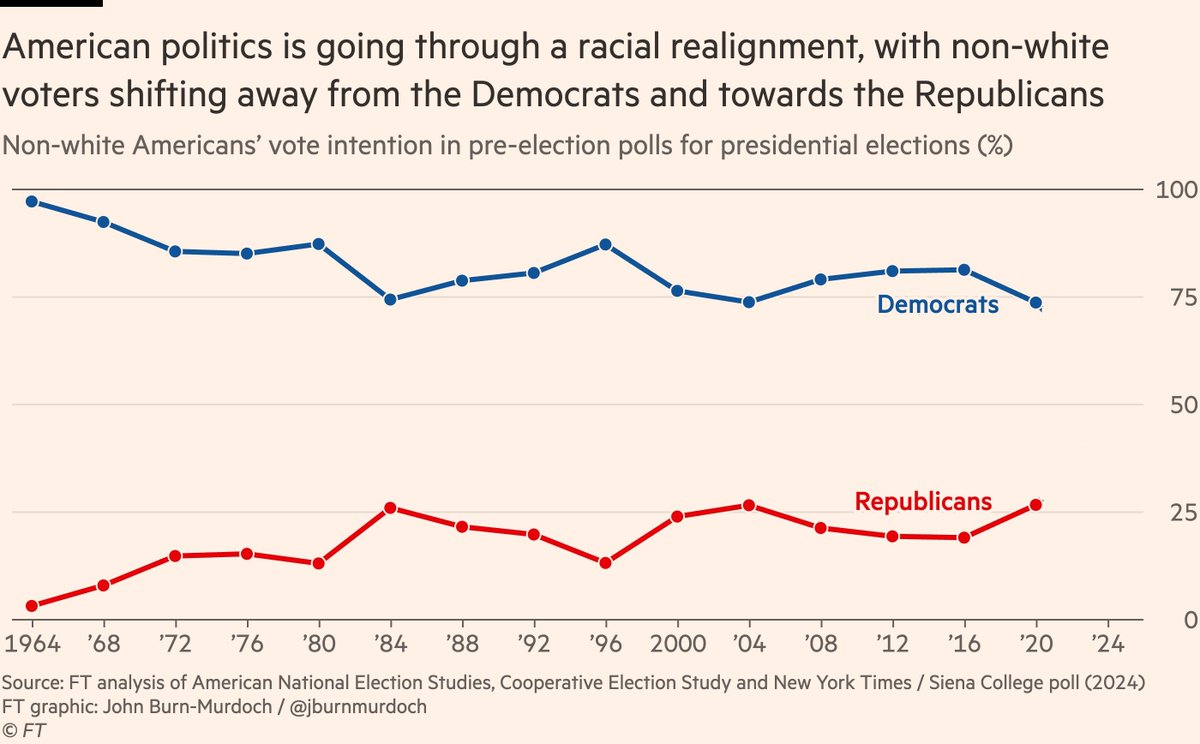IMO a reason many Dems are upset is that it feels like Calvinball
Dems do well in specials? Doesn't matter.
Trump does poorly in primaries? Doesn't matter.
Biden does poorly in primaries? Sign of weakness on the left.
Biden polls badly? Awful. Polls already overshot him in 2020.
Dems do well in specials? Doesn't matter.
Trump does poorly in primaries? Doesn't matter.
Biden does poorly in primaries? Sign of weakness on the left.
Biden polls badly? Awful. Polls already overshot him in 2020.
https://twitter.com/Nate_Cohn/status/1783188871292838161
I'm explaining. I'm not saying I agree with all of those arguments.
But it's clear to me that the reason this sentiment on Twitter exists is because there is a lot of talk focused around Biden's vulnerabilities in the data world, and not many about Trump's.
But it's clear to me that the reason this sentiment on Twitter exists is because there is a lot of talk focused around Biden's vulnerabilities in the data world, and not many about Trump's.
To this point, it's clear why that talk exists. You can easily reconcile Biden's polling woes with data, and show why the special elections and primaries may provide a false signal (IMO, valid counters exist to this too).
But that also pushes back on every point of Dem strength.
But that also pushes back on every point of Dem strength.
This also isn't helped by the fact that there is a group of pundits revolving around the data analysts who really want to jump on Democrats for either not being left-wing enough, or *too* left-wing. That's not the analysts' fault, but it contributes to why Democrats are mad.
Anyways, I think it's clear as to why people are angrier than usual about the polls, despite a very clean pattern emerging. The columns written at the moment have to explain Trump's polling strength. Doing that involves reconciling polls with the signals that seem good for Biden.
• • •
Missing some Tweet in this thread? You can try to
force a refresh






